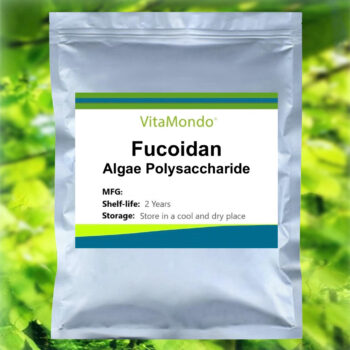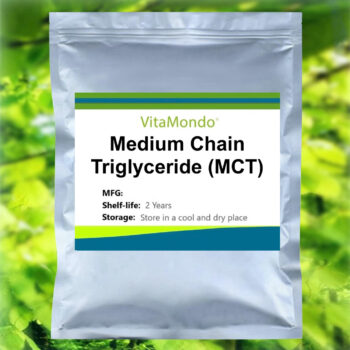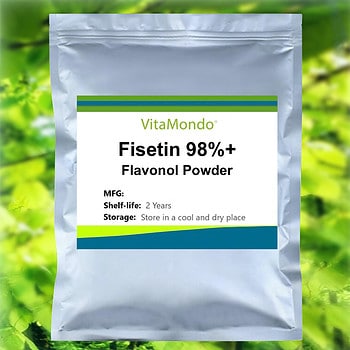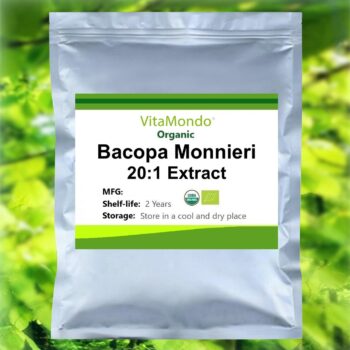Description
Premium Ursolic Acid Supplement is a natural compound found in minuscule amounts in various plants, fruits, and herbs, such as in the peels of apples. As a dietary supplement, it is associated with a myriad of biological activities and has gained attention for the wide-reaching health effects.
Function
People take premium ursolic acid supplement for a wide variety of reasons.
- Antioxidant. The acid acts exhibits potent anti-inflammatory and antioxidant properties. Chronic inflammation and oxidative stress are critical contributors to various chronic conditions, including those affecting heart, blood sugar, and cancer. By inhibiting the production of pro-inflammatory cytokines and reducing oxidative damage through scavenging free radicals, ursolic acid helps in mitigating these conditions. Studies have shown that ursolic acid can suppress the expression of cyclooxygenase-2 (COX-2) and inducible nitric oxide synthase (iNOS), enzymes linked to inflammation, thereby reducing inflammation at the molecular level.
- Metabolism and Weight. One of the most promising areas of ursolic acid research is its impact on metabolic health. The compound has been shown to influence several metabolic processes, including glucose metabolism, lipid metabolism, and energy expenditure. It enhances the expression of genes involved in fatty acid oxidation and increases muscle mass, which is vital for maintaining a healthy metabolism. Additionally, ursolic acid promotes the browning of white adipose tissue, a process that converts energy-storing white fat into energy-burning brown fat, thereby aiding in weight loss and preventing obesity.
- Heart Health. Cardiovascular health is another domain where ursolic shows promise. It helps in maintaining healthy cholesterol levels by reducing the levels of low-density lipoprotein (LDL) cholesterol and triglycerides while increasing high-density lipoprotein (HDL) cholesterol. Ursolic acid also exerts a protective effect on the endothelium, the inner lining of blood vessels, thereby improving vascular function and reducing the risk of atherosclerosis. Its antioxidant and anti-inflammatory properties further contribute to cardiovascular health by preventing oxidative damage and inflammation in the cardiovascular system.
- Muscles. The acid is known for its potential to promote muscle growth and strength. This is particularly beneficial for individuals looking to improve their physical performance and for those suffering from muscle wasting conditions such as sarcopenia. Research indicates that ursolic acid stimulates muscle hypertrophy by increasing the levels of insulin-like growth factor 1 (IGF-1) and activating the mTOR pathway, both of which are crucial for muscle protein synthesis. Furthermore, it has been shown to inhibit muscle atrophy by reducing the expression of muscle-degrading proteins. It has been studied for its potential to preserve and promote muscle mass. It may influence muscle protein synthesis and inhibit muscle protein breakdown, making it of interest for individuals looking to support muscle health and physical performance.
- Cognition. Emerging evidence suggests that ursolic acid possesses neuroprotective effects, making it a potential candidate for preventing and managing neurodegenerative illnesses, such as A and P. Ursolic acid reduces neuroinflammation, oxidative stress, and amyloid-beta accumulation, which are key factors in the pathogenesis of age-related decline. It also promotes neuronal survival and improves cognitive function by modulating various signaling pathways involved in neuroprotection.
- Antimicrobial and Antiviral. Ursolic acid has demonstrated antimicrobial and antiviral properties, making it useful in fighting infections. It has been shown to be effective against a range of bacterial pathogens, including Staphylococcus aureus and Escherichia coli. Its antiviral activity has been observed against viruses such as hepatitis B and C viruses, influenza virus, and human immunodeficiency virus (HIV). The mechanism of action involves disrupting microbial cell membranes and inhibiting viral replication.
- Skin. The benefits of ursolic acid extend to skin health as well. It is commonly used in cosmetic products for its anti-aging, anti-inflammatory, and wound-healing properties. Ursolic acid promotes collagen synthesis, improving skin elasticity and reducing the appearance of wrinkles. Its anti-inflammatory properties help in managing conditions such as acne and dermatitis. Additionally, it accelerates wound healing by enhancing the proliferation and migration of keratinocytes and fibroblasts, essential cells in the skin repair process.
- Potential Effects. UA may inhibit the growth of certain malignant cell growth and induce apoptosis (or programmed cell death) in senescent cells. It exhibits anti-proliferative and pro-apoptotic effects on various cancer cell lines, including breast, prostate, liver, and colon cell growth. It induces apoptosis (programmed cell death) in c. cells by activating intrinsic and extrinsic apoptotic pathways. Additionally, ursolic acid inhibits angiogenesis, the formation of new blood vessels, which is essential for tumor growth and metastasis. It also modulates multiple signaling pathways, such as the PI3K/Akt and NF-κB pathways, which are involved in c. cell survival and proliferation.
Suggested use
The suggested dose is 1000 mg to 3000 mg a day, which may be divided into 2 or 3 doses. Since this supplement has the strength 25%, this corresponds to a total dosage of 250 mg to 750 mg ursolic acid daily.
Ingredients
Premium Ursolic Acid Supplement. Concentration 25%. The remaining 75% are non-toxic plant materials that remains of the rosemary. Store in a dry, cool, and well-ventilated place.
Suggestions
A few products with some similarities are Phosphatidylserine, Huperzine, Ginkgo, NAC, CoQ10, Fisetin, Rutin, Sialic Acid, Lecithin, Pterostilbene, Alpha-GPC, and PQQ.
Disclaimer
The various effects are not guaranteed and results may vary due to several factors between different people.
We strive to ensure the accuracy of the information provided by the manufacturers and recommend that you read all labels and warnings. However, the information is not a substitute for, nor does it replace, professional medical advice, diagnosis, or treatment.














